"There’s nothing intimidating about computer science"
From 28 March to 1 April, the Informatiktage (Computer Science Days) will take place. The Department of Computer Science and ETH Zurich’s IT Services are once again involved as partners and offer a variety of events for school classes, teachers and interested students.
While teachers create video games, learn secret scripts for the classroom and try Scratch programming, students program their own games with Unity and get to know the IT Olympics. The Informatiktage will take place for the 5th time at the end of March. ETH Zurich has been on board since the first edition in 2016 in order to convey the fascination of computer science to visitors both young and old. This year’s series of events is aimed at schools and teachers.
Numerous lecturers and students from D-INFK are involved and committed to promoting young talent as course leaders and participants. What is their motivation for being involved?
All ETH offers for the Informatiktage: external page www.informatiktage.ch/eth
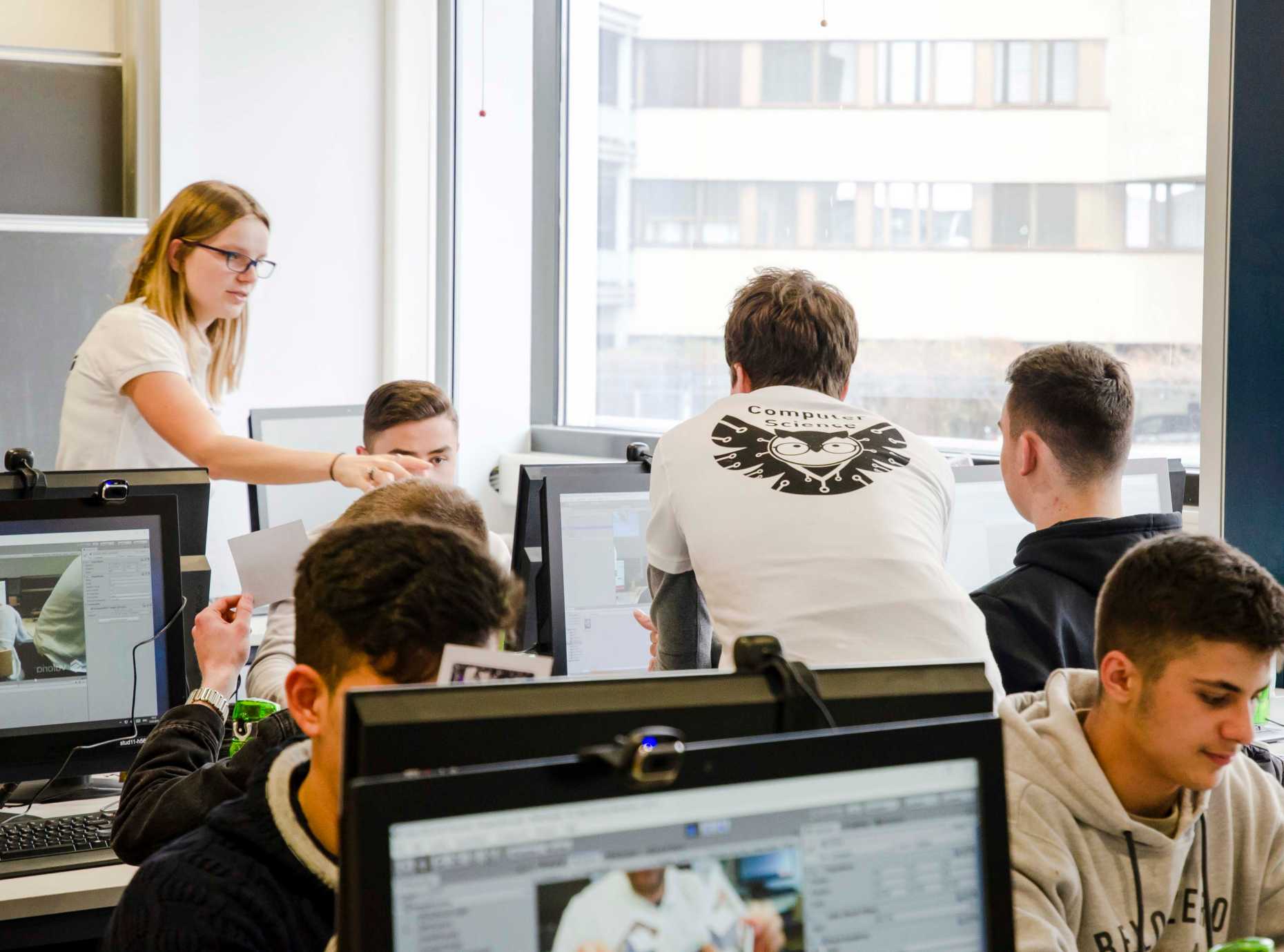
Julia Chatain
Doctoral student and course leader of the workshop “Programming video games with Unity”
“When we talk to students about computer science, we often find that they are not aware of its strong creative aspects. external page In this course, I want to show students that they can use maths and code to create whole new worlds and experiences. This way, they see that programming is powerful, but also fun and inspiring.
For me, the workshop is a success when the participants leave the course more curious than they came and are excited about learning more. By the way: Unity, the tool we use for teaching, is used extensively by game studios to develop games. The students understand that what they learn during the workshop is already on the track to making a bigger game, so they can continue learning and creating beyond the workshop.”
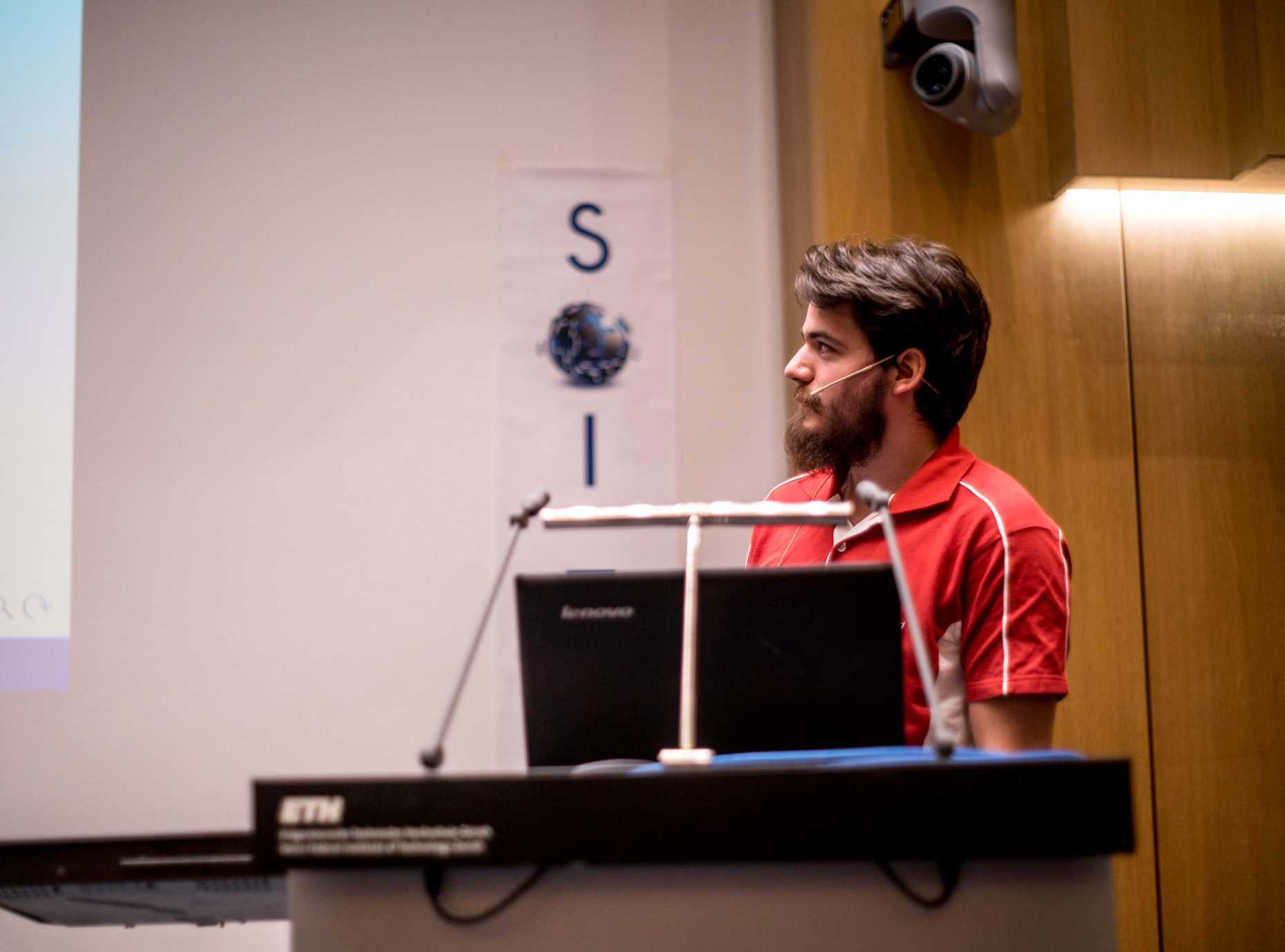
Timon Gehr
Doctoral student and responsible SOI (Swiss Olympiad in Informatics) for “Olympic Gold for Computer Scientists”
“Our external page information event is aimed at students who like puzzles and know how to code, or would like to learn it. At the event, they find out whether they would like to take part in the Informatics Olympiad. We give a preview of our training for the competitions. The training includes both theory inputs and a system with training exercises that automatically checks programmed solutions.
In addition to the guidance from the course leaders – we are all former Olympians from Science Olympiads – participants help each other to get their solutions working. Social exchange is also a central part of the national and international events: we play games on the evenings of the training events and the training camps usually include excursion days. People who met at the IT Olympiad often meet up afterwards, whether on Discord or in person.”
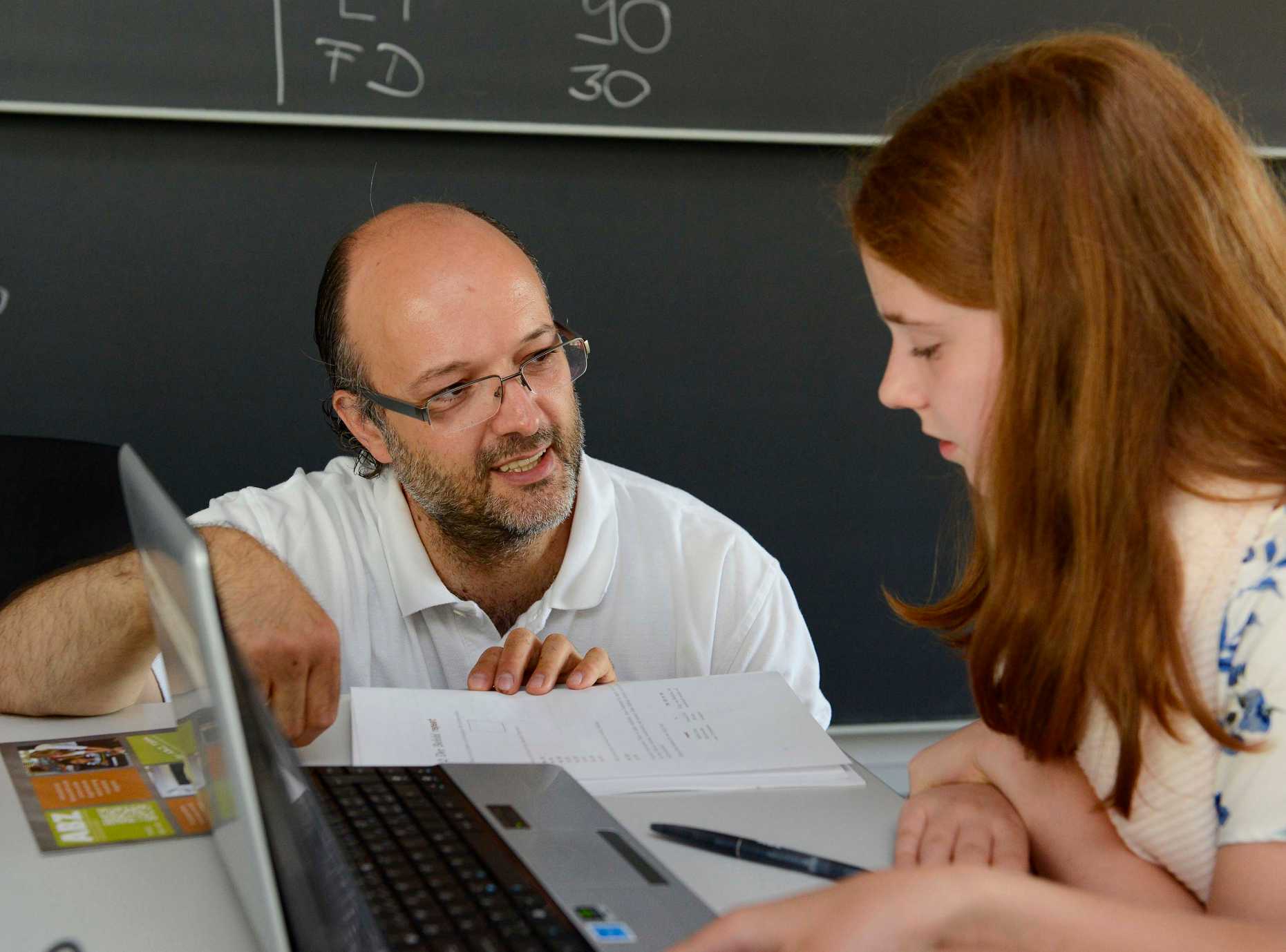
Giovanni Serafini
Lecturer and course leader of the online course “Secret code for primary school”
“I usually prefer to teach in person rather than in a virtual classroom. Last year, we had to switch to an online format. One of the advantages was attracting participants who would not have been able to join external page the workshop otherwise, such as three teachers from the Swiss school in Bogotá, Colombia. It was impressive that they were able to attend the course despite the six-hour time difference.
To our delight, this course led to several follow-up projects. A teacher who had participated in the course invited me to her school and told a colleague from another school about our activities. Eventually, we were able to introduce five teachers and their classes to programming and computer science “unplugged”. We spent more than 16 hours teaching each class. With such workshops, we are raising awareness among teachers that computer science is not primarily about computers, networks or technology, but about people and their toolbox for problem solving. Thinking like a computer scientist in this context means solving a problem using ideas, methods, facts and concepts unique to our wonderful discipline.”
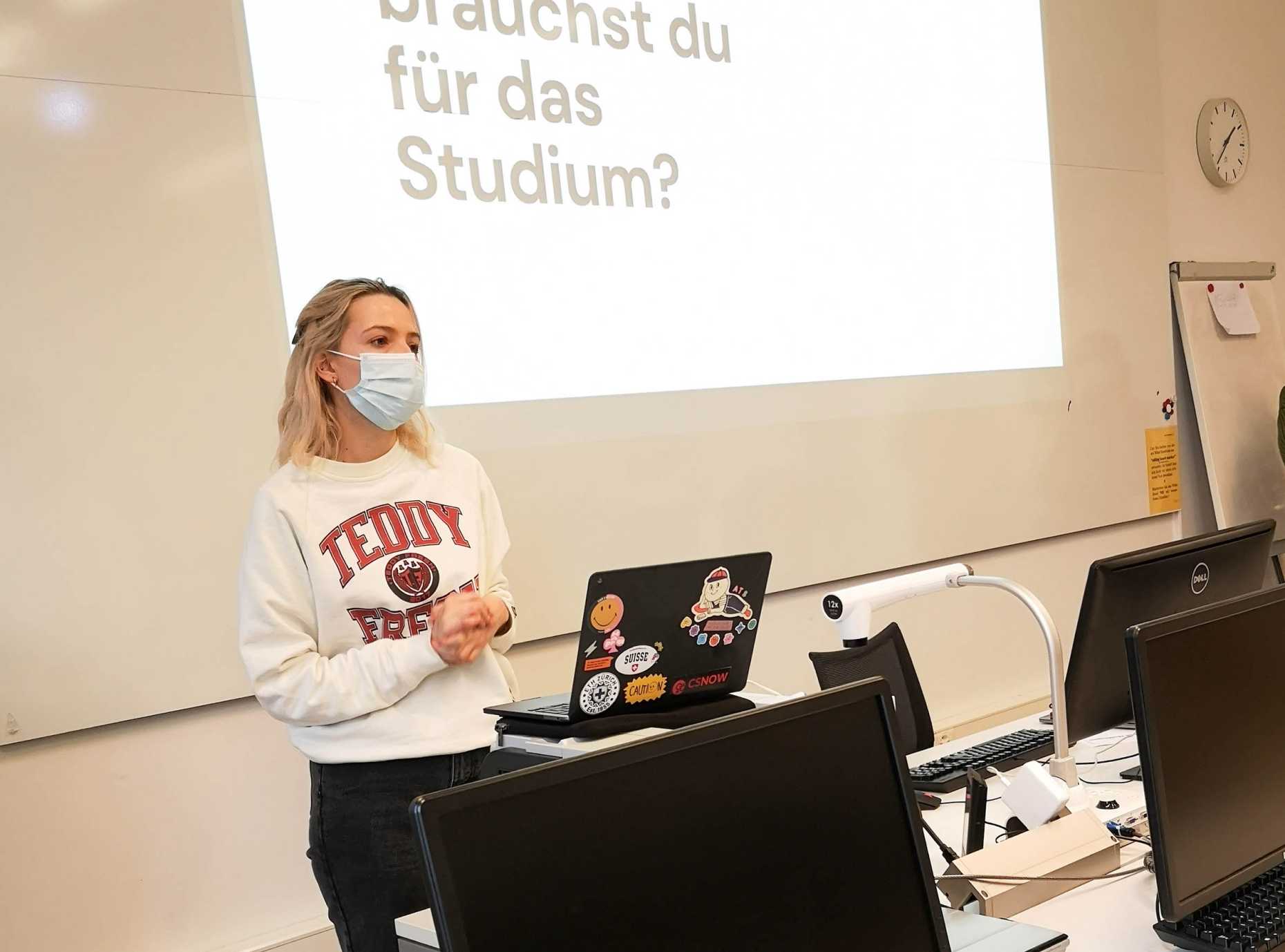
Thereza Schiemer
Bachelor’s student and representative for “Computer science studies at ETH Zurich and the University of Zurich”
“I was only 17 when I decided where to study, and looking back, I made a rash decision – I thought I was informed. external page Our event confronts the students with this choice. Perhaps the listeners recognise themselves in me or can identify with my story and my view of ETH. Besides myself, an ETH student, there’s also a computer science student from the University of Zurich. This way, you can directly compare these two options, which is rarely possible. We try not only to rattle off facts, but to talk about our own experiences.
I enjoy being a speaker, since there are still not a lot of women who study computer science. I’m happy to know that I might change someone’s perspective. Most of the questions are very practical: how the application process works, where the rents are cheapest in Zurich. Prospective students also often ask how to balance their studies and the rest of their life. I give tips and examples from my personal life and try to motivate them.”
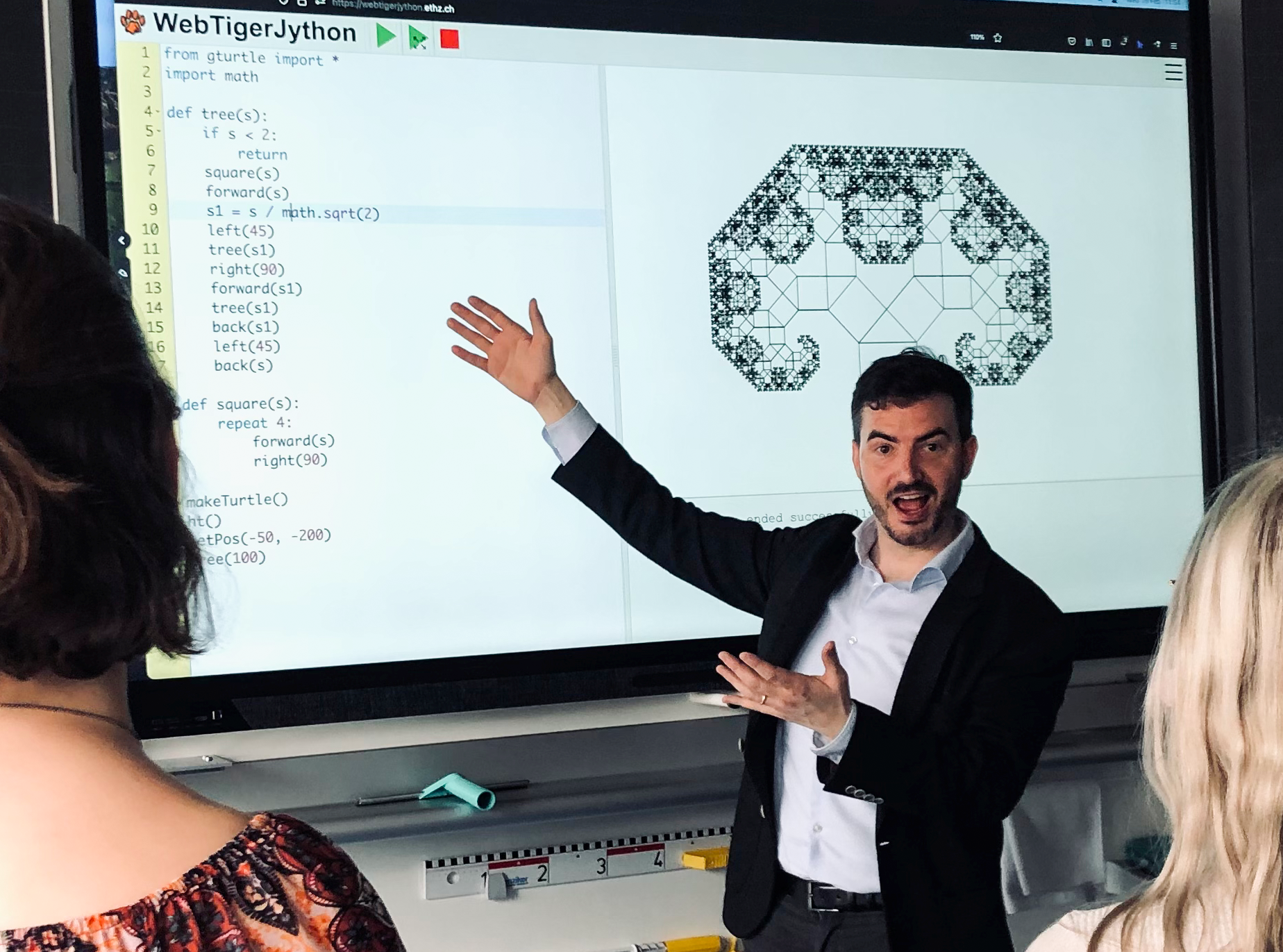
Dennis Komm
Senior Scientist at D-INFK, Professor at the University for Teacher Education Graubünden (PHGR) and course leader of the course “Python for schoolgirls”
“We are often asked why we offer a course only for female students. I would love for that to not be necessary. Ideally, I would advertise a programming course and half of the participants would be girls, without doing anything extra. This objective is actually not unrealistic. Because we see that girls can programme just as enthusiastically and successfully as boys. However, computer science still has an image problem to some extent, which is why we need to directly address girls with this course.
We are by no means packaging computer science as something it is not, quite the opposite. It’s not about wildly hacking away at the keyboard, but about creative problem solving. It’s about investigating exciting problems, perhaps solving them with completely crazy ideas, and working out this solution so precisely that you can even explain it to a computer. There’s nothing intimidating about computer science.
I think such initiatives and events are important because many girls decide against studying computer science or other STEM subjects for the wrong reasons. To all those who are interested: there are still spots free in the external page Python course for schoolgirls!”